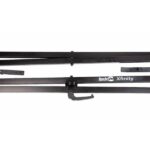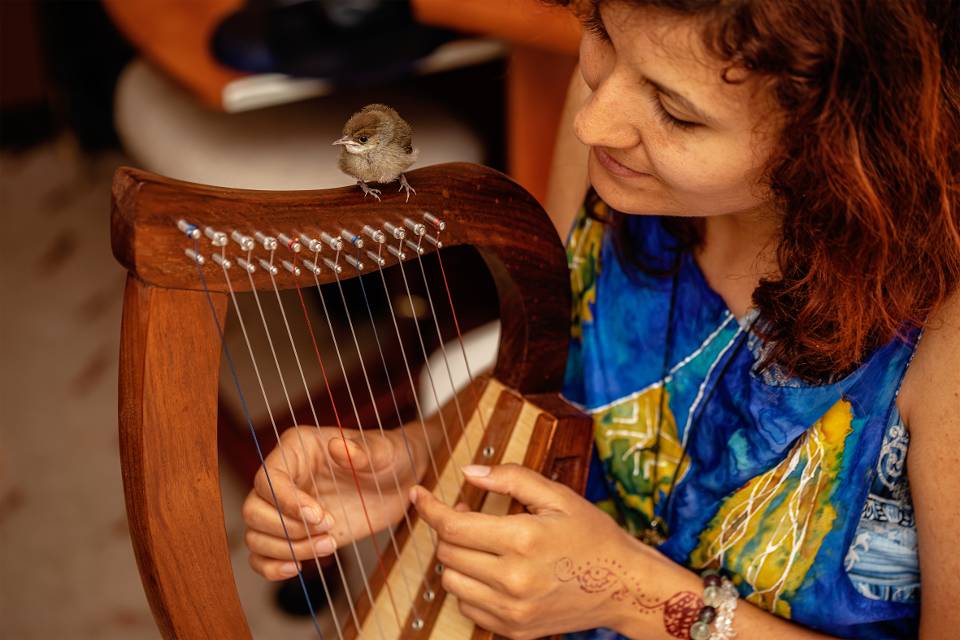Have you ever felt frustrated while playing your oboe with unpleasant and unexpected squeaking sounds?
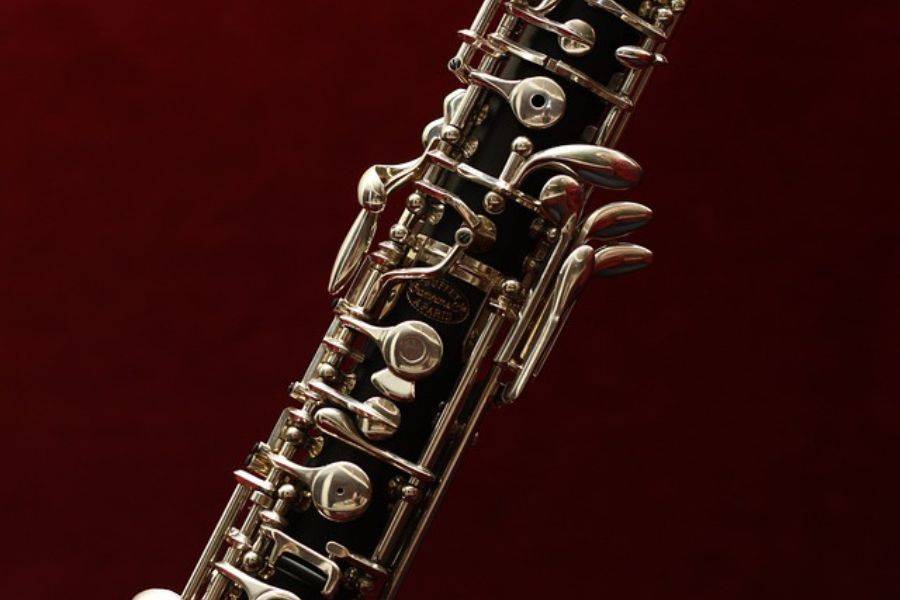
Oboe squeaking can be a common and bothersome issue encountered by novice and experienced players.
However, fear not, as this problem is often fixable through troubleshooting and basic maintenance techniques.
This article will explore the reasons behind oboe squeaking and provide comprehensive steps to fix it.
So, whether you’re a beginner or a seasoned player seeking tips to overcome this hurdle, read on to discover valuable insights.
We will help you tackle oboe squeaks head-on and restore the harmonious sounds of your instrument.
Contents
Understanding Oboe Squeaking
Oboe squeaking refers to high-pitched, unwanted sounds during oboe play. It can range from subtle squeaks to loud screeching noises that disrupt the performance.
These squeaks affect the player’s confidence and the quality of the music produced.
By understanding several factors that can cause oboe squeaking, you will be better equipped to identify and address the issues affecting your instrument.
Common Causes of Oboe Squeaking
Here are the common causes of oboe squeaking and how to fix it:
1. Reed Issues
The reed is an essential component of the oboe that can significantly influence its sound production. Squeaks often occur due to problems with the reed, such as:
Incorrect Reed Placement
If the reed is not correctly aligned with the oboe’s body, it can result in air leakage and squeaks.
Worn-out or Damaged Deed
Over time, reeds can become worn out or damaged, affecting their responsiveness and causing squeaking.
What To Do
To fix reed issues of the oboe, follow these steps:
- Carefully examine the reed for any visible damage or wear.
- Ensure the reed is aligned correctly with the oboe’s body and seated securely.
- Before playing, soak the reed in water for a few minutes. It helps hydrate the cane and allows it to vibrate more easily.
- Blow air through the reed while covering the other end with your finger. Observe how the reed responds. It should produce a clear, focused sound without any rattling or buzzing.
- You can make minor adjustments if the reed is too open or closed. Gently squeeze the blades together to close the opening or apply light pressure to the sides to open it up. Be cautious and make minor adjustments at a time.
- If the reed is damaged or worn out, consider replacing it with a new one from a reputable source.
- When not in use, store reeds in a reed case or holder. It protects them from damage and helps maintain their shape and responsiveness.
Remember that reed adjustments require careful and precise handling.
If you need more clarification or uncomfortable making adjustments, seek guidance from an experienced oboist or a professional oboe technician.
2. Key and Mechanism Problems
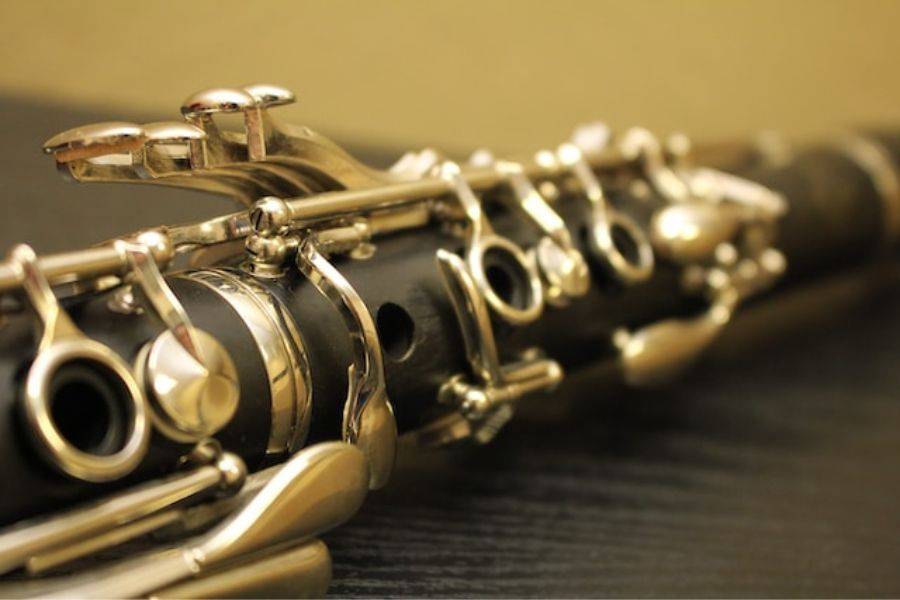
Oboes have intricate vital mechanisms that need to function smoothly for optimal performance. Issues with the keys and mechanisms can contribute to squeaking, including:
Misaligned Keys
If the keys are misaligned or not closing properly, it can disrupt the airflow and lead to squeaking.
Sticky or Stiff Keys
Keys that are sticky or stiff can impede their movement and cause squeaks during play.
What To Do
To fix key and mechanism problems of the oboe, follow these steps:
- Examine the keys and mechanisms for any visible issues, such as misalignment, bent keys, or loose screws. Look for any obstructions that may hinder their proper functioning.
- Clean the keys and mechanisms using a soft cloth or specialized cleaning tools. Remove any dirt, dust, or residue that may affect their movement. Apply a small amount of key oil or lubricant to ensure smooth and effortless key action.
- Carefully observe the alignment of the keys when pressing them individually and in combination. Misaligned keys can disrupt the airflow and lead to squeaking. If you notice any misalignment, consult an oboe technician or repair specialist for proper adjustment.
- If you encounter sticky or stiff keys, they may require attention. Apply a small amount of key oil or lubricant to the affected areas. Work the key back and forth to distribute the oil and loosen any stiffness. If the issue persists, seek professional assistance to avoid causing further damage.
- Check for any loose screws on the keys and mechanisms. Using a suitable screwdriver, tighten them carefully, ensuring not to over-tighten. Be cautious not to strip the screw heads or damage the surrounding components.
- If the key and mechanism problems persist or appear to be more complex, it’s recommended to consult a professional oboe technician.
3. Air and Embouchure Factors
How air is blown into the oboe and the embouchure technique can also contribute to squeaking.
Some factors to consider include:
Insufficient Air Support
Inadequate air support while playing can cause squeaking. It is essential to maintain steady and controlled airflow.
Incorrect Embouchure
Improper embouchure formation can lead to squeaks, such as excessive lip tension or biting on the reed.
What To Do
To address air and embouchure factors that may contribute to oboe squeaking, follow these steps:
- Engage your diaphragm and maintain controlled airflow to reduce squeaking.
- Avoid tension and allow the reed to vibrate freely, minimizing squeaks.
- Experiment with embouchure: find the best position for precise and stable tones.
- Get help from an experienced oboe teacher or mentor for personalized instruction.
- Dedicate consistent practice sessions to improve breath control and embouchure.
- Be patient; you’ll develop better control over time and achieve a consistent, beautiful sound.
Remember, these concise points highlight improving breath support and embouchure technique to minimize oboe squeaking.
4. Temperature and Instrument Maintenance Conditions
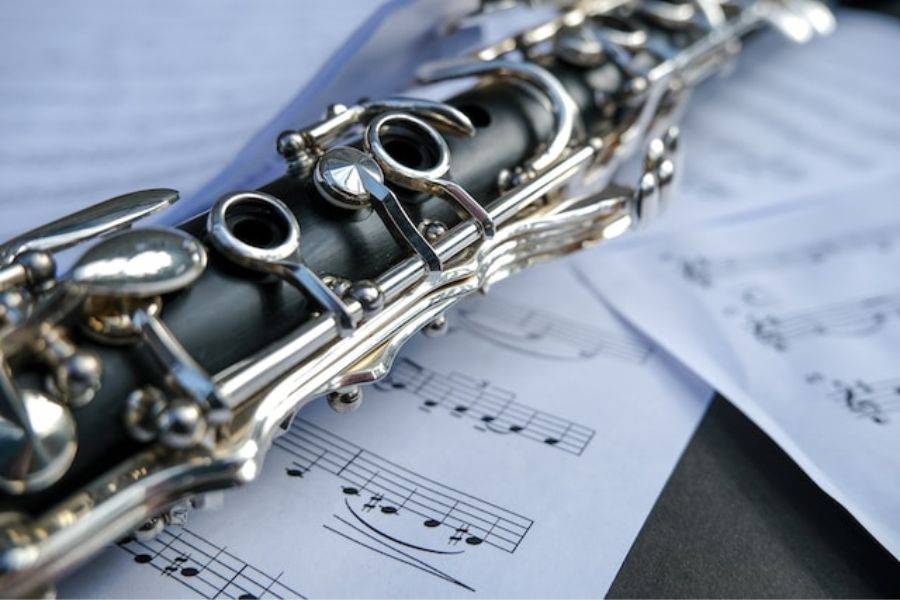
Temperature and Instrument Maintenance factors can impact the oboe’s performance and contribute to squeaking. These factors include:
Temperature and Humidity
Extreme temperature or humidity changes can affect the oboe’s wood and reed, leading to squeaking issues.
Instrument Maintenance
Neglecting regular cleaning, oiling, or adjustments can result in squeaks and other problems.
What To Do
To address environmental conditions that may impact the oboe and contribute to squeaking, follow these steps:
- Keep your oboe in a stable environment, avoiding extreme temperature and humidity changes that can cause squeaking. Store it in a room with controlled conditions.
- Use a well-padded case to transport and store your oboe. It provides insulation and safeguards against sudden temperature changes and excessive moisture.
- Avoid prolonged direct sunlight, as it can cause wood expansion or contraction. Keep your oboe shaded or use a cover when not in use or during outdoor performances.
- Schedule routine visits to a professional oboe technician for cleaning, adjustments, and inspections. It helps identify and address environmental-related issues.
- Use a hygrometer to measure humidity levels in the room where you keep your oboe. Aim for a 45% humidity for instrument stability.
- Adjust your playing and maintenance routine based on seasonal temperature and humidity changes. Adapt to dry winters or humid summers to prevent issues.
Conclusion
Addressing oboe squeaking requires a comprehensive approach.
Understand the various factors that contribute to squeaks, such as reed issues, key and mechanism problems, air and embouchure characteristics, and environmental conditions.
It can take practical steps to resolve the problem. By carefully addressing the factors contributing to squeaks, you can minimize squeaking and enhance your playing experience.
Seek guidance from experienced oboe instructors, practice regularly, and maintain your instrument diligently.
By doing so, you can overcome oboe squeaking and enjoy this beautiful instrument’s rich and melodic sounds.
Remember, consistent effort and attention to detail will improve performance and a more rewarding musical journey.



